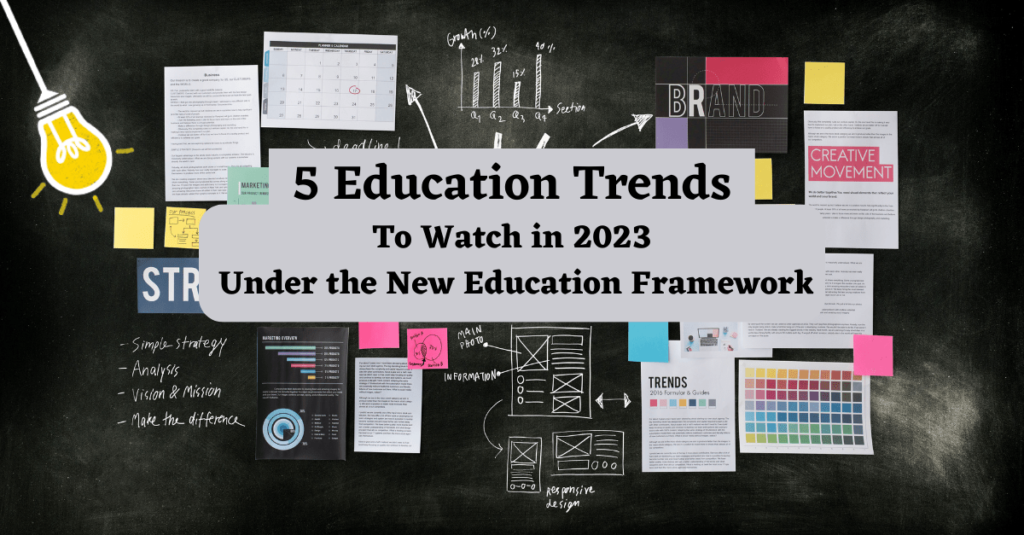Introduction
The Indian educational sector has undergone major changes in the nearly three years after the Covid-19 epidemic sparked the shift to online learning. Learning is no longer constrained by time or location in the age of technology-enhanced, personalized, and multidisciplinary education. The education system is still growing, with further reforms being adopted for a well educated, future oriented country, with the National Education Policy, 2020 serving as a guiding light.
Technology improvements, adjustments in societal requirements, and evolving pedagogical techniques have all contributed to substantial changes in the education industry throughout the years. The COVID-19 epidemic has hastened these changes, resulting in the widespread use of distant learning and online education. As we approach 2023, the new education framework promises to significantly change the sector. We will look at the upcoming educational trends in 2023 as they relate to the new educational framework in this blog.
Trends to watch out
Here are five education trends that, under the new education framework, are likely to shape the future of learning in 2023:
An integrated curriculum- An integrated curriculum is a teaching method that integrates many disciplines or areas of study into a cohesive whole. By connecting diverse subject areas and explaining the linkages between them, this strategy produces a more coherent learning experience for students. For example, arithmetic and history courses can be linked by carrying out exercises such as estimating the costs of war. The government of India launched the country’s first integrated curriculum framework for primary school students last year.
Changes in teaching methodologies- Traditional rote learning will be phased out in favor of more practical, activity-, and project-based learning techniques. Aside from teaching the subject, education will emphasize the development of students’ creativity, critical thinking, and important life skills. Extensive use of technology in the classroom, as well as the NEP 2020-recommended instruction in regional languages, will result in improved educational management.
Evaluation- The emphasis on activity-based learning in schools will also lead to a greater evaluation of students’ practical knowledge of subjects. Non-theoretical or experimental assessments will take precedence over prior standardized, theory-based testing. Schools will also shift toward a criterion-based grading system, which will assess students’ performance in relation to the learning objectives of each program.
Teachers’ continuous professional development- In accordance with the policy, additional investment will be made in the professional development of teachers at the local and national levels, as well as their working surroundings and service conditions, beginning in 2023. Professional development allows teachers to stay current on the most recent teaching methods and strategies, as well as subject matter expertise.
The impact of skill development- NEP 2020 also emphasized the importance of skill development as a component of education in order to foster transdisciplinary learning and equip students with a solid foundation in technical skills in order for them to be competitive in the job market. Students with employable skills are more likely to find work and contribute significantly to the economy, thereby helping to develop a better nation.
Conclusion
The educational landscape is constantly changing, and the new education framework is expected to bring about substantial changes that will determine the sector’s future. Education institutions must stay adaptive and innovative in their methods of teaching and learning as technology advances and society’s requirements evolve. By adopting the above mentioned trends, education stakeholders remain ahead of the curve and guarantee that students are equipped for the challenges of the future. The new education framework’s implementation, as well as these trends, will necessitate collaboration and cooperation from all education stakeholders, including policymakers, educators, parents, and students. The education sector may be transformed into a more dynamic, equitable, and effective system that satisfies the needs of all learners with coordinated efforts.
